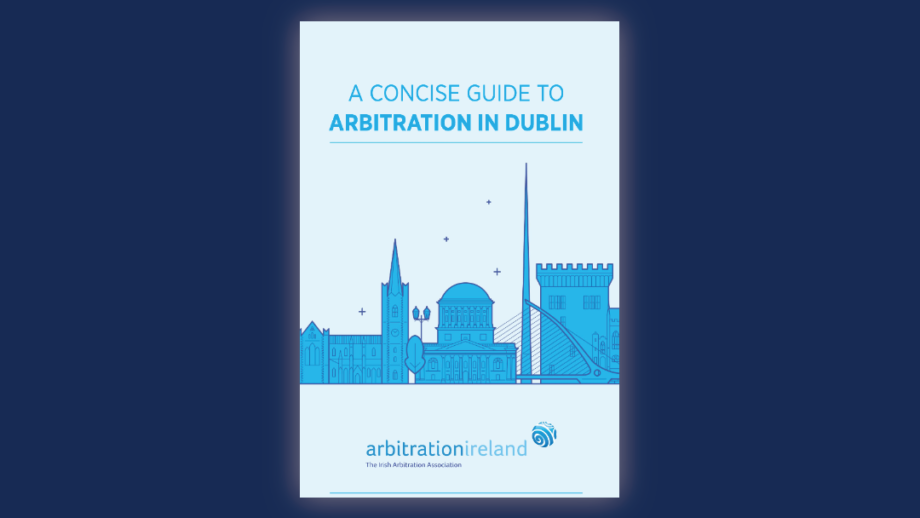
International arbitration offers an exciting and fulfilling career path for barristers, though it can be a challenging area to break in to due to the competitive nature of the field.
In this article, Susan Ahern SC and Mariana Verdes BL share valuable tips and highlight key events to help aspiring practitioners successfully build a thriving arbitration practice, both domestically and internationally.
International arbitration has become a prominent and attractive field for barristers looking to practice in complex cross border disputes. While this is an exciting and fulfilling area of practice, it is difficult to break into and get that first appointment when coming from the barrister profession. This can be attributed to factors such as a lower volume of arbitration work being available in Ireland, with very few international arbitration disputes using Ireland as a seat as well as the niche expertise built by large law firms with designated arbitration teams who frequently conduct their own advocacy in arbitral proceedings. The absence of an arbitral institution based in Ireland could also be a contributing factor.
Traditionally a practice in international arbitration was conventionally pursued by joining either an arbitral institution or a prominent law firm with a specialised practice in this field. However, various opportunities do present themselves and with the development of global arbitral institutions and emerging areas of law where recourse to arbitration is on the rise (e.g. aviation and technology), it is not beyond the realm of possibility to build a successful practice from the Irish Bar as has been done by numerous colleagues.
In this article we have put together a number of tips and a list of key calendar events for those interested in developing their practice in the area of arbitration both domestic and international.
1. Understand the Field of International Arbitration
First, a successful career in international arbitration combines the requisite legal acumen, cultural awareness, language skills as well as building a ‘profile’ amongst peers in this area of law. Having a particular legal specialism can also be a gateway entry point into that area of arbitration from which a practitioner can build out a more expansive arbitration practice. Naturally one should be well versed in the legal principles of arbitration both domestic and international. A helpful guide to arbitration in Ireland has been published by Arbitration Ireland and is available here.

Practitioners should have a firm grasp of procedural and governing laws such as the Irish Arbitration Act 2010 which adopts the UNCITRAL Model Law, as well as various other institutional arbitration rules such as ICC Rules, LCIA, ICDR, VIAC, PCA, HKIAC and for investment disputes between states and nationals of other countries the ICSID rules.
2. Consider Arbitration Training and Accreditation
Attending specialised courses and CPD type events can help build up this knowledge base as well as networking with existing arbitration practitioners. The Chartered Institute of Arbitrators amongst others, provide training courses and accreditation post qualification which carry an international standard of approval which translates across borders.

Useful reading resources such as Global Arbitration Review (GAR) and Kluwer Arbitration Blog which is available through the Law Library subscription, provide necessary updates in relation to awards (decisions) in international arbitration and key trends and topics. There are also regular online seminars and conferences which are hosted by law firms, institutions and arbitration practitioners which are an invaluable source of information. Individuals are also encouraged to write articles on topics in arbitration as publication in the InBrief, GAR or Kluwer Arbitration Blog can greatly assist with building your profile in this area of law.
3. Gain Experience Early On
Gain experience of the arbitral process from practitioners who practice in this field including in domestic arbitrations.
Consider mentoring type programs such as the highly regarded Young ICCA Mentoring Programme which is an amazing opportunity to be mentored alongside colleagues from across the globe. For female practitioners Arbitral Women is a targeted support network which also offers mentoring opportunities.

For young members of the Bar from year 1-7 the Arbitration & ADR Committee (in collaboration in 2024 with the Young Bar Committee) facilitates an annual internship to the International Centre for Dispute Resolution (ICDR) in New York which provides an invaluable experience into the workings of a leading global arbitration institution. The Committee is actively trying to develop further opportunities with other arbitral institutions and disputes bodies, so members are advised to keep an eye out for such opportunities as well as application details, which will be advertised in InBrief.
Members are reminded of the previous events which are available in the CPD recordings sections such as the event titled “How to Build a Practice in Arbitration” which was held on the 4th of December 2024 at which prominent speakers gave tips and advice from their perspective.
On the 10 th June 2024, we held an event which was recorded on opportunities for barristers to register and put themselves forward as tribunal secretaries for arbitrators. The Global Tribunal Secretary Platform provides a new and unique opportunity to work as a tribunal secretary and gain invaluable experience into arbitration while conducting research and providing assistance to the arbitrator/tribunal(s). The Arbitration & ADR Committee intends to provide training to members on the role of tribunal secretaries and those interested are advised to keep an eye out for this in the near future.
4. Network with the Arbitration Community
The arbitration community both domestic and international is a small, tightly knit field where networking plays a crucial role in building a practice. Individuals are highly encouraged to join Arbitration Ireland which has a discounted membership rate for young practitioners as well as events tailored towards young practitioners and international events such as the London Chapter. The Chartered Institute of Arbitrators is another important organisation that runs events at home and abroad. Events are organised throughout the year by the Arbitration and ADR Committee to which experienced arbitration practitioners contribute their experience and insights. Dublin International Disputes Week is an annual event which was held in September 2024 and presents another opportunity to attend arbitration related events and to network with Irish and international lawyers and arbitration practitioners.
Below is a calendar with some key international events.
Finally, we would also suggest that patience is required as building an international arbitration practice takes time and is an incremental process but can be a fruitful addition to any practice at the Bar.
The views expressed above are the author’s own and do not reflect the views of The Bar of Ireland.